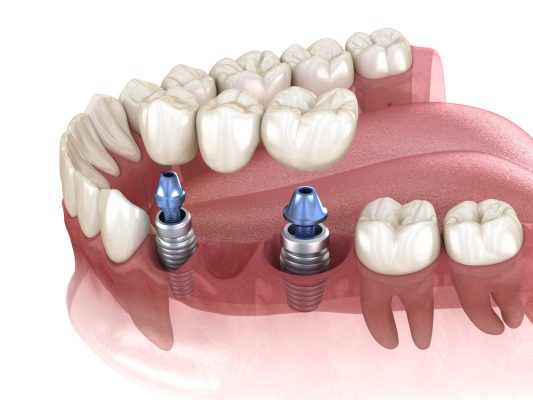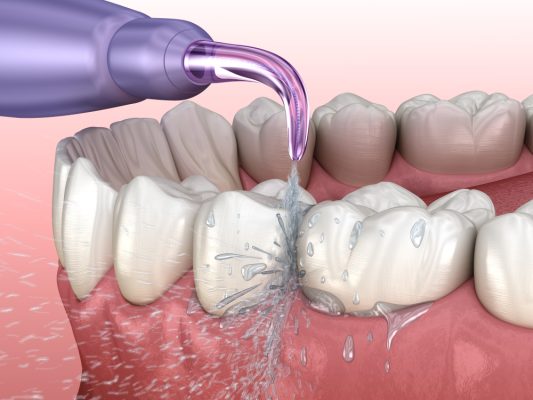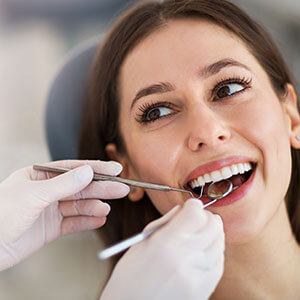How to Care for Your Dental Implants
Maintaining dental implants is vital to achieving a healthy, long-lasting smile. Dental implants function like natural teeth, but they require consistent care to prevent complications and ensure their longevity. This comprehensive guide from Glenwood Dental Associates will outline the important aspects of dental implant maintenance, oral hygiene practices, and necessary routine dental visits.
If you have questions or need assistance, feel free to reach out to our general dentist at (302) 653-5011 for guidance and support. Located in Smyrna, Delaware, Glenwood Dental Associates welcomes patients from Dover, Clayton, and Middletown.
Understanding the Importance of Dental Implant Care
One of the key benefits of dental implants is that they typically do not demand special maintenance, unlike other tooth replacement options. While they mimic the function and appearance of natural teeth, proper care is essential. Well-maintained dental implants can last for many years, giving you confidence in your smile and functionality in your daily life.
Basic Oral Hygiene Habits
To protect your dental implants, good oral hygiene practices are critical. Patients should follow these foundational habits:
- Brushing: Brush your teeth at least twice a day. Focus on all areas, including the tops, sides, and gum lines. Using a soft-bristled toothbrush and an implant-safe toothpaste will help prevent damage to dental work.
- Flossing: Floss daily to remove plaque and debris from between your teeth and around your implants. Consider using specially designed floss or a floss threader for easier access.
- Mouth Rinse: Rinse with an antiseptic mouthwash, particularly one made for dental implants, to help eliminate bacteria and freshen your breath.
These practices are essential for maintaining the integrity and health of your implants.
Brushing Your Teeth
Brushing is one of the most effective ways to maintain your implants. Use a toothbrush with soft bristles to avoid scratching or damaging your implants. Be thorough while brushing, addressing all surfaces, which includes tops and sides. Special toothpaste designed for implants can offer added protection, reducing potential wear on the implant materials.
 Flossing
Flossing
Daily flossing is another essential routine. It helps prevent plaque buildup and keeps your gums healthy. Use floss designed specifically for implants, or a Waterpik, to ensure effective cleaning around the implant and adjacent natural teeth. Keeping these areas clean can significantly reduce the risk of peri-implantitis, a condition that affects the tissues surrounding dental implants.
Rinsing Your Mouth
In addition to brushing and flossing, rinsing your mouth after meals can help remove any lingering food particles and bacteria. Swishing an antiseptic mouthwash can be particularly beneficial. Rinse for about 30 seconds, targeting the implant site to reduce risks of plaque buildup.
Nutrition and Lifestyle Considerations
Your diet affects your implant’s longevity. Hard foods can damage implant restorations, while sugary foods increase the risk of bacterial growth around the implant site. Choose balanced meals rich in vitamins and minerals to support oral health. Drinking plenty of water helps maintain healthy gum tissue around your implants.
Avoiding tobacco products significantly improves implant success rates. Smoking reduces blood flow to your gums and can compromise the healing process. If you need support quitting, our team can provide resources and recommendations.
Importance of Routine Dental Visits
Regular check-ups and professional cleanings play an essential role in maintaining your dental implants. At Glenwood Dental Associates, we recommend patients schedule dental visits every six months, but some may require more frequent check-ups depending on individual health needs. During these appointments, our skilled dentists will provide:
Comprehensive Evaluation: Dentists will assess your dental implants and surrounding tissues for any signs of wear or complications.
- Plaque Removal: Professional cleanings help remove tartar and plaque that can build up despite best home care practices.
- Consultation: If any issues or potential problems arise, your dentist will discuss possible solutions to maintain the health of your implants.
Your Smyrna dental team offers trained support and professional insights that empower effective home care.
Potential Problems Without Proper Maintenance
Failing to maintain dental implants can lead to several issues over time:
- Peri-implantitis: This gum disease may occur around the implant, causing inflammation and bone loss. Symptoms such as swelling, bleeding, or discomfort require prompt attention. Treatment options may include antibiotics, deeper cleanings, or additional surgical intervention if needed.
- Loose Implants: A loose or wobbly implant could indicate an issue with the abutment screw or potential implant failure. Contact your dentist immediately if you experience any looseness to ensure timely evaluation.
- Broken Restoration: The crown or restoration attached to the implant may become loose or break. Normal wear or trauma can cause this, so regular examinations are vital for identifying early signs of wear.
- Gum Recession: If gum tissue recedes around an implant, exposure to bacteria increases, heightening the risk of implant failure. Surgical remedies, like gum grafting, may be recommended to restore gum health.
Recognizing these potential risks and taking proactive measures can minimize complications and preserve your dental implants. If you suspect any problems after your dental implant procedure, contact our dentist in Smyrna at (302) 653-5011 for timely assistance.
Frequently Asked Questions
Soft-bristled toothbrushes and non-abrasive toothpaste form the foundation of implant care. Water flossers provide excellent cleaning between teeth and around implants. Special implant-specific floss and interdental brushes help reach difficult areas around the restoration.
Typically, food does not get trapped under dental implants as their base is fused with the jawbone. Implants are designed to function just like natural teeth, providing excellent performance without the hassle of food entrapment.
Yes, plaque can form on dental implants similar to natural teeth. Plaque accumulation increases the risk of gum disease and implant failure if not addressed properly through thorough oral hygiene practices.
Aggressive brushing or using abrasive products can scratch implant restorations and irritate the surrounding tissue. Using appropriate cleaning tools and proper technique protects both your implant and natural teeth. Your dental team will demonstrate the correct cleaning methods for your specific situation.
Your Dental Implants Can Last a Lifetime with Glenwood Dental Associates
With the right care and maintenance, dental implants can provide a lasting solution to missing teeth that meets your functional and aesthetic needs. If you have any questions or need to schedule a visit, don’t hesitate to reach out to Glenwood Dental Associates in Smyrna, DE, by calling (302) 653-5011. Our team is dedicated to providing you with exceptional dental care and support.
We invite residents from surrounding areas such as Kenton, Clayton, and Townsend to visit us for all your dental implant needs. We’re committed to delivering compassionate care and beautiful smiles to every patient who walks through our doors. Contact us today!

 Flossing
Flossing